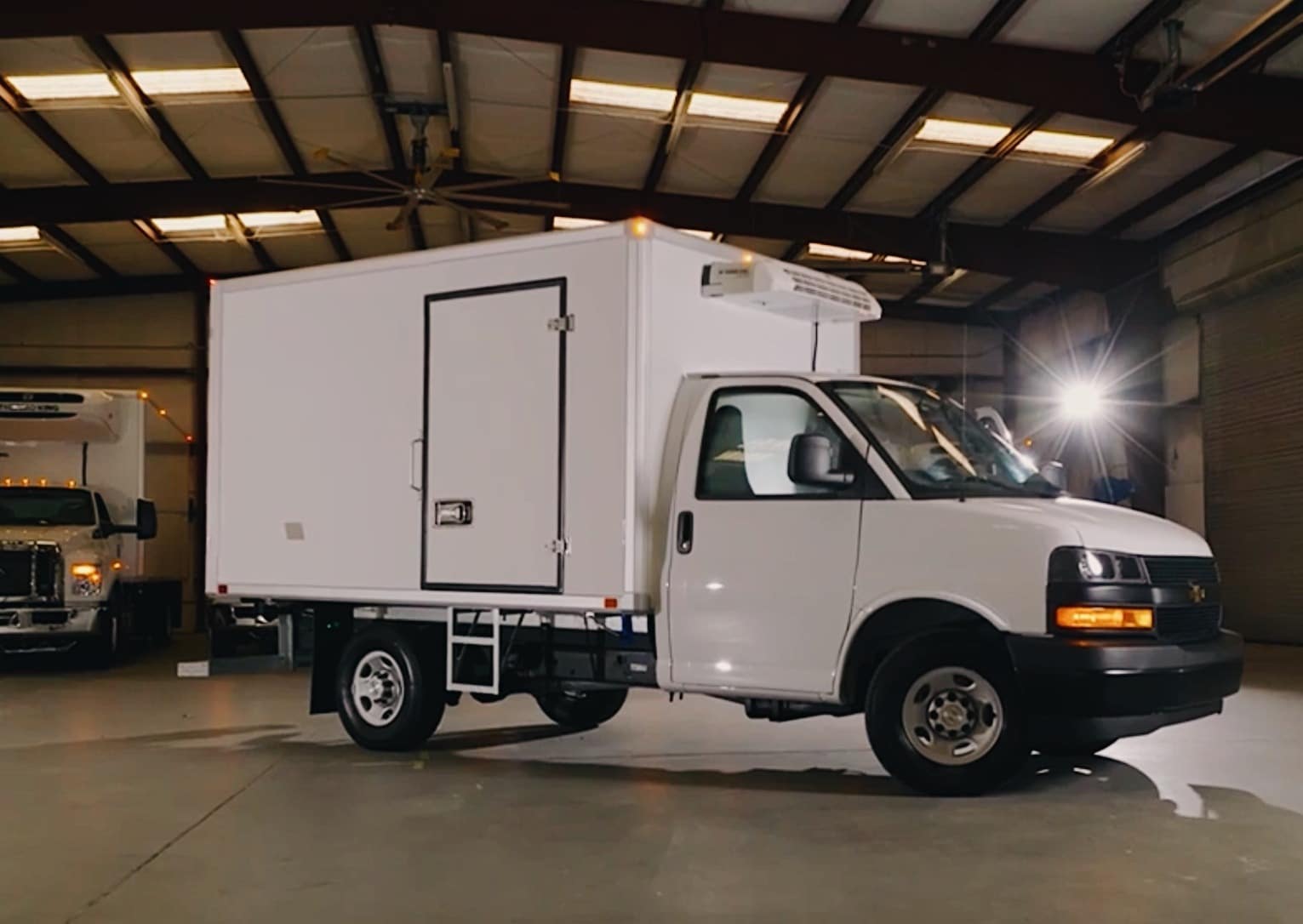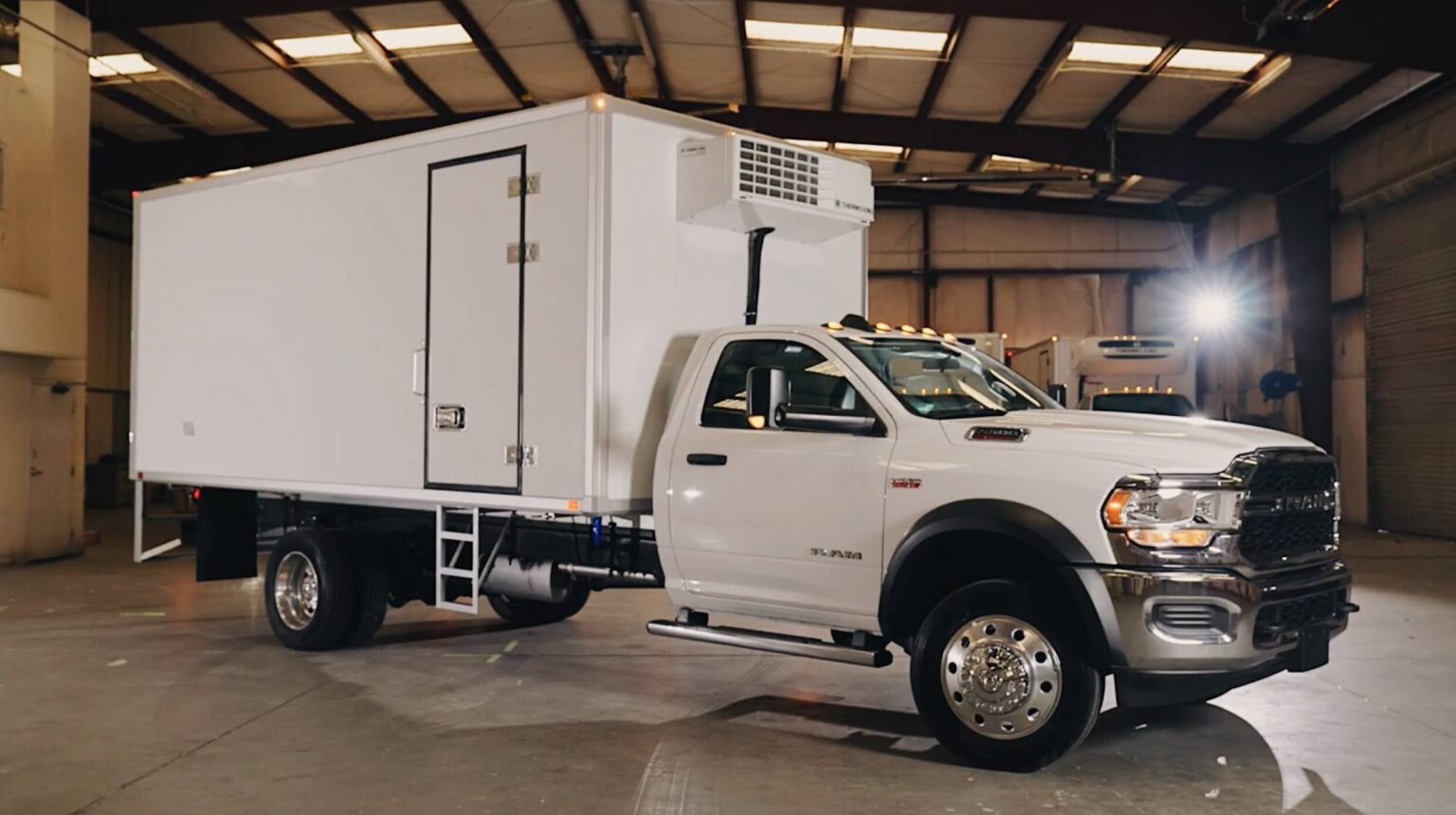Refrigerated Transportation Thermo King: The Ultimate Option
Refrigerated Transportation Thermo King: The Ultimate Option
Blog Article
Selecting the Right Transportation Refrigeration System for Your Fleet
Choosing a suitable transport refrigeration system for your fleet is a vital decision that can considerably impact operational efficiency and product integrity. It necessitates a comprehensive understanding of your specific refrigeration demands, consisting of temperature level demands and shipment schedules.
Recognizing Your Refrigeration Needs
When choosing a transportation refrigeration system, understanding your particular refrigeration requirements is vital to ensuring product top quality and conformity with market standards. Various elements need to be taken into consideration to establish one of the most suitable system for your procedure. These consist of the kind of items being transported, their temperature requirements, and the duration of transit.
For perishable goods, such as fresh produce or pharmaceuticals, precise temperature control is critical. Understanding the temperature range needed for each and every product permits for the option of a system that can maintain those problems constantly. Furthermore, consider the frequency of distributions and the distance took a trip; longer journeys may demand systems with improved insulation or backup power options to stop temperature changes.

Furthermore, the capability of the refrigeration device need to line up with your load size. By thoroughly examining these aspects, you can make certain that your selected transport refrigeration system successfully satisfies your functional requirements and preserves product integrity.
Types of Transport Refrigeration Systems
Choosing the best type of transportation refrigeration system is crucial for making sure the safe transportation of temperature-sensitive goods. There are several systems available, each developed to meet specific needs and applications.
These systems are commonly favored for their effectiveness and reduced initial costs. An additional choice is the central refrigeration system, which serves several compartments or cars from a single compressor system.
In addition, there are self-supporting refrigeration units that incorporate the compressor and evaporator in one bundle. These units are perfect for smaller sized automobiles or when area is restricted. For specialized applications, such as transporting drugs or perishables, cryogenic refrigeration systems may be made use of, using fluid nitrogen or co2 to maintain ultra-low temperature levels.
Lastly, hybrid refrigeration systems that combine electrical and diesel power are coming to be increasingly popular, using versatility in energy usage and minimizing ecological effect. Comprehending these numerous kinds permits fleet drivers to make informed decisions customized to their particular operational demands.
Trick Features to Take Into Consideration
Just how can one guarantee that a transportation refrigeration system meets all functional requirements? To achieve this, a number of crucial attributes have to be meticulously reviewed. Temperature level control is vital; systems should offer specific temperature settings to suit different items, ranging from iced up products to perishable things.
Energy performance is another essential factor to consider, as it influences functional prices. Seek systems that make use of advanced innovation, such as variable speed compressors, to enhance energy use without jeopardizing efficiency.
Another review attribute to assess is the reliability and toughness of the equipment. Solutions created from premium products and developed for strength against severe problems will certainly minimize maintenance costs and downtime.
Moreover, the simplicity of upkeep and availability of elements can dramatically affect functional efficiency (refrigerated transportation thermo king). Attributes like modular layouts or remote surveillance capacities can streamline service procedures
Last but not least, compatibility with existing fleet monitoring software can boost tracking and reporting processes. By concentrating on these key functions, fleet operators can make sure that their transportation refrigeration systems not only fulfill existing demands but additionally adapt to future needs.

Budgeting for Refrigeration Solutions
Reviewing vital features of transportation refrigeration systems is just one part of ensuring functional efficiency; budgeting for refrigeration services is equally vital. A well-structured budget plan not just includes the preliminary acquisition cost however also thinks about long-lasting functional prices, consisting of energy intake, upkeep, and prospective fixing demands.
When developing a budget, fleet supervisors ought to first analyze the complete expense of ownership (TCO) This consists of not only the acquisition costs however additionally recurring costs connected to fuel effectiveness and the resilience of the refrigeration units. Picking systems with greater power effectiveness ratings might generate significant financial savings with time, reducing upfront expenses.
Additionally, fleet operators ought to account for prospective scalability. As organizations grow, the refrigeration needs might alter, demanding upgrades or additional systems. Planning for these future expenditures can protect against economic stress.
Financing alternatives can additionally play a vital duty in budgeting. Leasing, financings, or outright purchases each have distinctive monetary implications, and comprehending these can help in making an educated choice. Eventually, a thorough budget plan that considers both future and instant needs guarantees that transportation refrigeration systems add favorably to the general functional performance of the fleet.
Maintenance and Assistance Alternatives
In the realm of transportation refrigeration systems, effective maintenance and assistance options are essential for guaranteeing optimal performance and longevity. Regular upkeep is important to avoid failures and maintain the stability of temperature-sensitive cargo. It is advisable to establish a routine examination routine with qualified specialists who can do necessary checks and repair work on refrigeration systems.
Assistance alternatives should include a durable service agreement, covering both routine upkeep and emergency repair work. This makes certain that your fleet has accessibility to trigger help, decreasing downtime and keeping operational effectiveness. Numerous suppliers provide detailed support plans that you could try these out consist of training for your team, enabling them to execute standard troubleshooting and upkeep jobs.
Furthermore, utilizing remote monitoring modern technology can enhance your maintenance strategy - refrigerated transportation thermo king. These systems supply real-time information on temperature level and efficiency, enabling aggressive steps prior to problems rise. Spending in training and technology not just enhances your fleet's integrity but also prolongs the life expectancy of your refrigeration systems
Inevitably, a critical approach to maintenance and support will guard your investment and make sure that your transport refrigeration systems run at peak efficiency, providing regular results for your official statement company.

Verdict
In verdict, picking the appropriate transport refrigeration system for a fleet requires an extensive assessment of certain refrigeration demands, system types, and important functions. In addition, cautious budgeting and preparation for future scalability will add to the long-lasting success of the refrigeration technique.
Choosing a suitable transport refrigeration system for your fleet is a vital choice that can considerably influence functional performance and product integrity.When choosing a transport refrigeration system, recognizing your certain refrigeration needs is paramount to making certain product quality and compliance with sector requirements. By thoroughly analyzing these variables, you can ensure that your selected transportation refrigeration system efficiently meets your functional requirements and keeps product integrity.
Ultimately, an extensive budget that thinks about both instant and future needs makes sure that transportation refrigeration systems add positively to the total operational effectiveness of the fleet.
In conclusion, picking the suitable transportation refrigeration system for a fleet necessitates a detailed analysis of specific refrigeration demands, system kinds, and crucial attributes.
Report this page